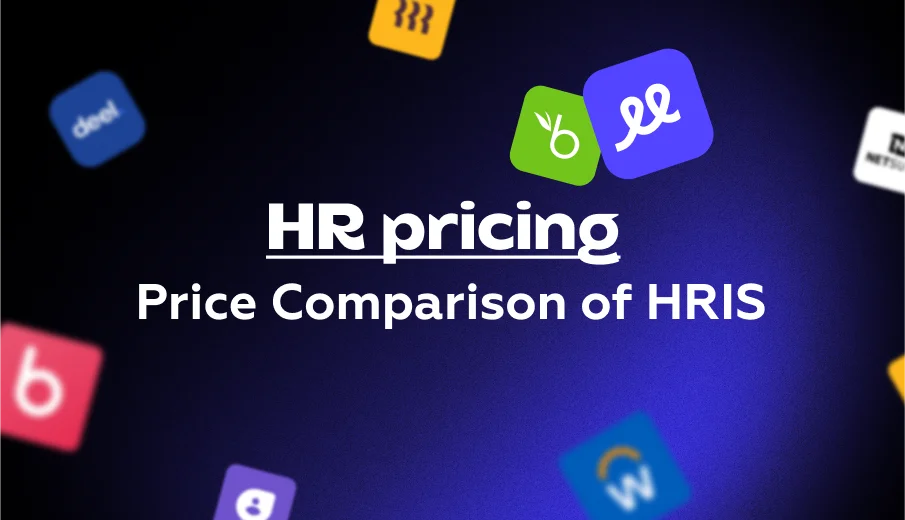HR Pricing: A Comparison of Selected HRIS Costs

HR systems have become an essential part of modern human resources. They help with employee records, document management, leave approvals, and onboarding, providing an all-in-one HR solution that enhances the employee experience through effective employee database management and self-service options. Some even support recruitment, performance evaluation, or shift planning. But be careful—not every system includes all features by default, and the differences in pricing and functionality can be significant.
What do HR systems usually include?
The core of every HR system is employee records management, document handling, approval workflows, and clear dashboards. From there, the offerings diverge—some systems include performance evaluations, surveys, or an ATS (applicant tracking system), while others (like Giriton) specialize in attendance, shift planning, and field work. Some platforms also cater to specific needs, like employee performance tracking and time-off requests, while others focus on AI and automation, such as Sloneek.
What affects the final price of an HR system?
Not all prices are created equal. Even if you see something like “from €2,30/per month,” the final cost often depends on several variables:
- Number of users – the more employees you have, the higher the total cost, although usually the price per user decreases
- Module range – some systems are all-in-one, others you need to assemble like Lego
- Deployment method – cloud-based (SaaS) is usually cheaper, while on-premise installations may incur higher one-time costs
- Customization and integrations – connections to payroll, ERP, or terminals may be charged separately
- Support and SLA – some packages include premium support or guaranteed availability
Additionally, some providers offer transparent pricing structures or flexible-user pricing plans that might include annual software fees or custom quotes based on specific needs.
What to ask when choosing a system?
- How many features do I really need? (e.g., ATS, performance management, whistleblowing)
- Do I want an all-in-one solution or modular system?
- Do I need a mobile app, shift planning, time tracking or a management tool?
- How easy is it to implement and how does the support work?
- Do I need the HRIS to integrate with my payroll system, calendar, use a communication tool, or provide document editors, etc.?
Benefits of an HR system
Doing HR without a system today means doing unnecessary work. Manually retyping data, approving every vacation by email, or searching for documents in folders wastes time—and energy you could instead spend on people.
An HR system takes over these tasks by leveraging intelligent, data-driven work processes. It automates, clarifies, and speeds things up while enhancing internal communications, allowing HR to focus on what truly matters—building relationships, developing people, and improving the work environment.
The less administration you handle, the more space you have for real HR work.
Price Comparison of Selected HRIS for 50 Users (April 2025)
|
System |
Price (Monthly, 50 Users) |
Pricing Model |
|---|---|---|
|
Pinya HR |
€170 |
All-in-one (with optional add-ons) |
|
Giriton |
€179 |
All-in-one |
|
Breezy |
€132 |
Individual offer |
|
Zoho |
€67 – €222 |
Individual offer |
|
Dynamics 365 HR |
€6000 |
Individual offer |
|
Sage |
from €222 |
Modular, depends on selected features |
|
HiBob |
from €700 |
Individual offer |
|
BambooHR |
from €600 |
Individual offer |
After examining the detailed pricing comparison, it becomes evident that businesses have a wide array of HR management solutions to consider, each catering to different needs and budgets.
With options like Bamboo HR pricing and Sage HR pricing offering comprehensive services, companies can choose the most suitable plan for their specific requirements. Dynamics 365 HR pricing stands out for its robust integration capabilities, while Zoho HR pricing provides a more budget-friendly option without compromising essential features.
For those interested in recruitment-focused tools, Breezy HR pricing offers competitive plans that streamline the hiring process.
Each platform’s unique pricing plans and price rating enable organizations to make informed decisions based on their strategic priorities and budget constraints.
How to Choose the Right HR System?
Choosing the right HR system is a multifaceted decision that extends beyond mere cost considerations. Businesses must evaluate a platform’s security features and security services, which play a crucial role in protecting sensitive data and ensuring compliance.
The ideal system should also offer seamless integrations with existing tools such as human capital management and expense management, facilitating streamlined operations and enhanced efficiency.
When considering different options, it’s imperative to be aware of potential unexpected costs arising from various parameters, including maintenance and scalability issues.
Remote access software is another key feature to consider, allowing teams to remain productive and connected regardless of their location.
Start by clarifying your requirements: whether you need recruitment tools, a unified platform for teams, custom apps tailored to your business size, or advanced artificial intelligence capabilities.
Engage with multiple providers, explore their offerings, and leverage free trials to assess compatibility and intuitiveness.
Remember, the ultimate goal is to find a system that integrates well with your team and aligns with your operational needs and strategic goals, making it a true investment in the way your company operates.




